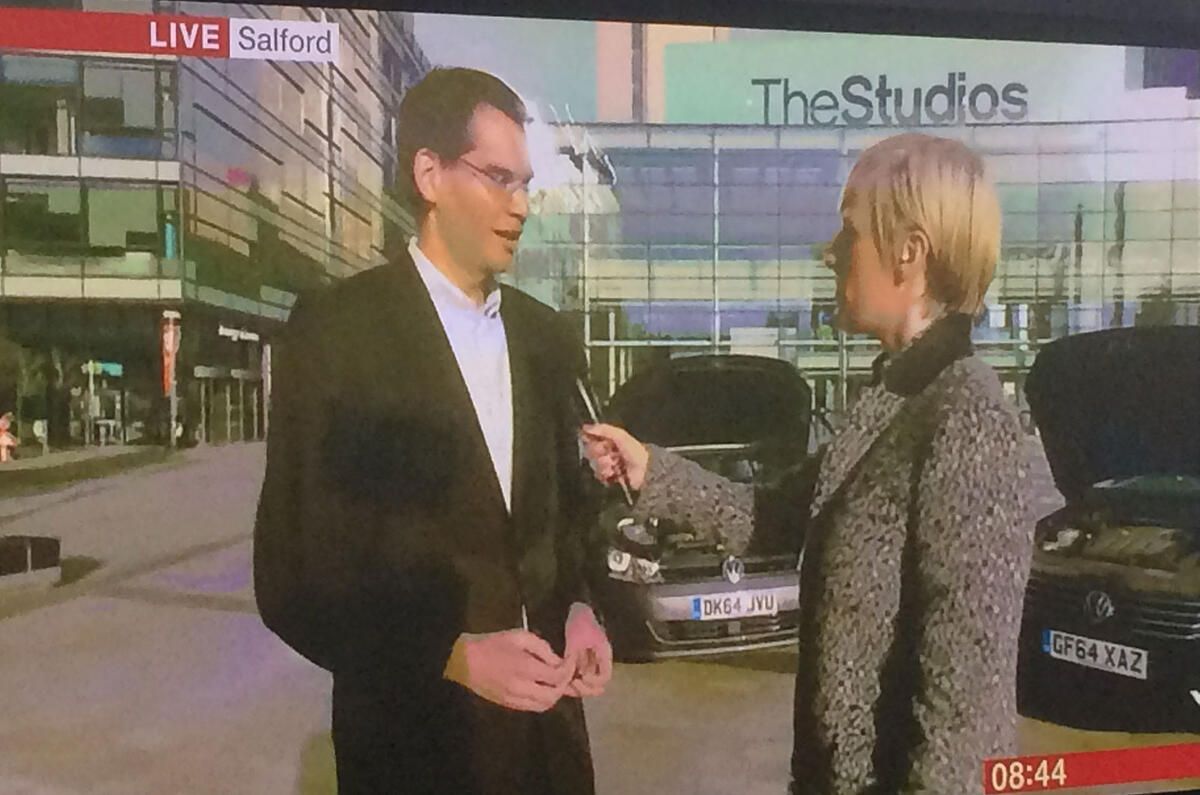I’ve spent most of today talking about the VW dieselgate crisis on the BBC, starting at 5.30am on Wake up to Money and, as I write this, about to recommence shortly on BBC World News.
This is a story that is dominating headlines around the world, and which looks like it will continue doing so for some time yet.
Among the commentary however, there is a growing thread of what is, on current evidence, misguided opinion that if VW can get caught doing something so intrinsically dishonest that the entire car industry must be doing the same - not just with NOx testing, but in every form of what they do.
What bothers me is that VW’s fall from grace is being confused and used to tar an industry that has long stood at the vanguard of pioneering technical innovation, achieved through hard work, mega-bucks investment and inspiration rather than wilful cheating.
At present, this centres around those seeking to use the discrepancy between official fuel consumption figures and real-world fuel figures. John McIlroy has already offered up an opinion on exactly this point, stressing the key differences between a failed NOx test in the USA and claimed mpg figures in Europe. However, now the argument is raging, regardless of its relevance it needs addressing.
In brief, car makers are being tarred as dishonest because their officially and independently ratified economy and emissions figures achieved on the European NEDC cycle do not meet real-world claims. This, of course, is not news to anyone who has driven a car for any length of time with an eye on economy – that it is nigh-on impossible to replicate results achieved in a lab in a test designed around repeatability is no great shock.
But what are the car makers meant to do? The NEDC gives them a set of regulations, which inevitably they try to make their cars excel in. The figures they achieve are critical to sales - setting road tax and company car levels among other things - and as a result the best possible figures are inevitably chased with gusto.
The problem in this instance, I would argue, lies not with the car makers but with the regulations – and in further defence, I would add that the car makers, along with industry and regularitory bodies have been working towards a new, more real-world biased test for some time. Yes, it has been a thorny path to agreement, but given the billions of euros invested by the industry in current standards that is perhaps not unreasonable. A new test regime is forthcoming.




Join the debate
Add your comment
Automotive journalism - a chance for relevance
Who's laughing now?
No choice with diesel con
The modern diesel as a cure all is a piece of cul de sac thinking, what makes it much worse is the cynical hopeless unreliability of many of the components, built in non repairability, inadequate design and longevity, the complete opposite of older diesel engines.
Most of the media has whole heartedly gone along with the modern diesel, not listening( or noticing) that to the high mileage or 2nd or 3rd owners who have to buy these heaps to try and make a living while spending ludicrous amounts of money ( and losing much valuable time) on keeping such junk going, out in the world away from the brand new, diesel machines reliability is at an all time low and it doesnt matter who makes these money pits, they are an enormous con trick on the public, VW is no better or worse, they haven't had the guts or humility(eg industrial tech ego) to admit that the emissions target were not economically viable, whilst keeping some kind of long term reliability. Autocar get out there and talk to people and don't be so scared of what you'll hear.